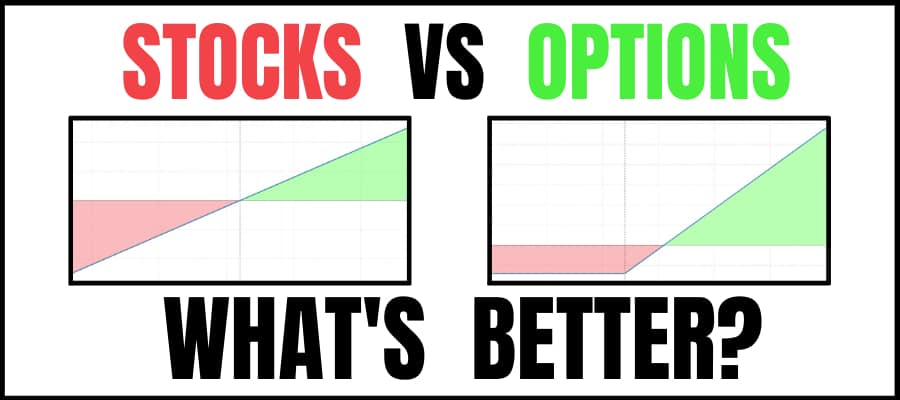Introduction
In the labyrinth of financial markets, where fortunes are made and lost, two primary investment avenues stand out: stock trading and options trading. Both offer distinct advantages and risks, beckoning investors with the allure of potential profit. However, discerning the nuances between them is crucial for navigating these waters successfully. This comprehensive guide will delve into the intricacies of options trading vs. stocks, empowering you with the knowledge to make informed decisions and maximize your financial growth.

Image: www.samco.in
The Anatomy of Options
Options are financial contracts that provide the holder the right, but not the obligation, to buy or sell an underlying asset at a specified price on a specified date. Options contracts are derivatives that derive their value from the performance of the underlying asset, such as a stock, bond, or commodity. There are two primary types of options: calls and puts. Call options give the holder the right to buy an asset, while put options give the holder the right to sell an asset. The exercise price, or the price at which the buyer can exercise their right, and the expiration date are also specified in the contract.
Understanding Stocks
Stocks represent ownership in a company. When you invest in stocks, you become a part-owner and are entitled to a share of the company’s profits through dividends. In addition, you have the potential to gain if the value of the stock increases over time. However, owning stocks also carries the risk of losing your investment if the company’s performance deteriorates or market conditions turn sour.
Benefits and Risks

Image: tradeoptionswithme.com
Options Trading
Benefits:
• Leverage: Options provide leverage, allowing you to control a large amount of the underlying asset with a relatively small investment.
• Flexibility: Options offer a wide range of strategies that cater to different risk tolerances and investment goals.
• Income Generation: Selling options can generate income even if the underlying asset does not move significantly.
Risks:
• Potential for Loss: Options can incur significant losses if the underlying asset moves against the investor’s predictions.
• Time Decay: Options lose value over time as the expiration date approaches, even if the underlying asset remains stable.
• Complex Strategies: Some options strategies can be complex and involve multiple underlying assets, making them suitable only for experienced traders.
Stock Trading
Benefits:
• Ownership: Stocks represent ownership in a company, providing investors with a stake in its growth and profitability.
• Potential for Appreciation: Stocks have the potential to appreciate in value over the long term, providing investors with capital gains.
• Dividends: Stocks can pay dividends, which provide investors with regular income.
Risks:
• Market Volatility: Stock prices can fluctuate significantly due to market events or company performance, exposing investors to the risk of losses.
• Lack of Leverage: Stocks offer no leverage, meaning investors need to invest a larger amount to control a specific asset.
• Limited Income Potential: Returns from stocks are primarily driven by capital gains and dividends, which can be limited during periods of low market growth.
Choosing the Right Path
The choice between options trading and stock trading depends on your individual risk tolerance, investment goals, and level of experience. Options trading can be a lucrative but risky venture, providing the potential for high returns with the increased potential for losses. It requires a higher level of knowledge and skill, making it more suitable for experienced traders. Stock trading, on the other hand, offers a more straightforward approach with the potential for long-term growth but also carries the risk of market fluctuations.
Options Trading Vs Stocks

Image: www.tradethetechnicals.com
Conclusion
The decision between options trading vs. stocks is a critical one that can impact your investment portfolio significantly. By understanding the risks, rewards, and strategies involved in each, you can make informed choices that align with your financial objectives. Whether you choose the calculated risks and potential rewards of options trading or the established approach of stock trading, empowering yourself with knowledge is the key to unlocking financial success in these dynamic markets.






